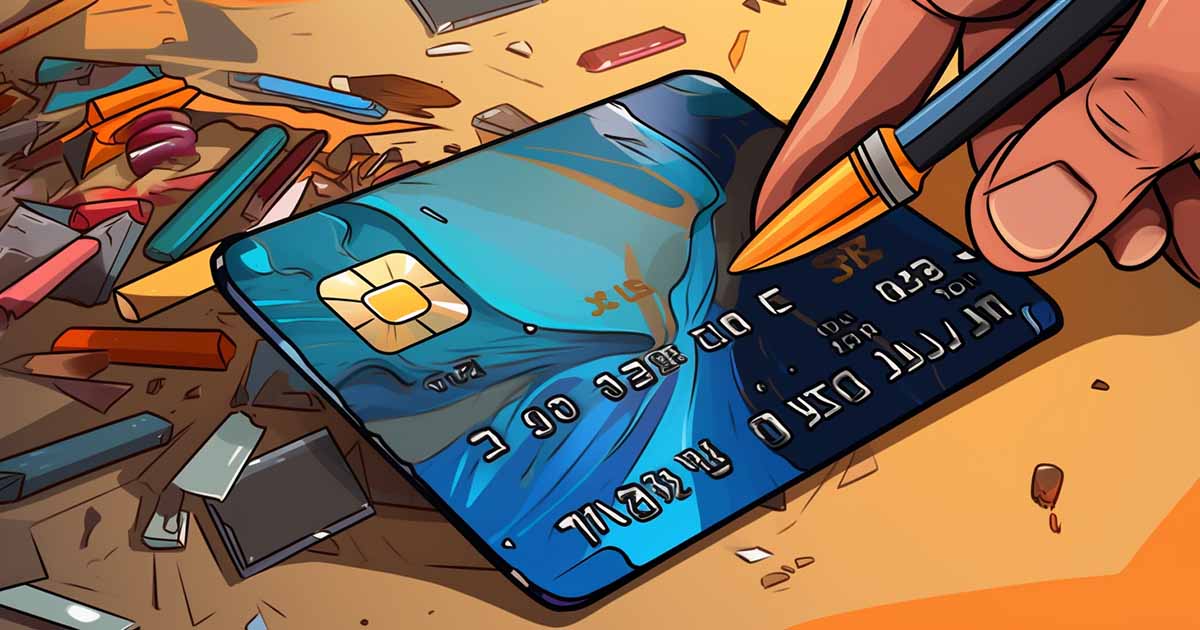How to Build a DIY Credit Repair Plan
Navigate your DIY credit repair journey with this step-by-step guide. From understanding reports to seeking legal aid, reclaim your financial freedom.

When financial missteps tank your credit score, knowing how to navigate the repair process is your lifeline to better opportunities. Dive in to reclaim your financial freedom, starting now.
In the labyrinth of credit scores, mistakes can send you spiraling. But with a DIY approach, you can chart a path back to peak financial health, one informed step at a time.
In this article, we will suggest some steps you can try to build your own do-it-yourself (DIY) credit repair plan.
Understand Your Credit Report
Think of your credit report as your financial report card, chronicling your borrowing and repaying history.
Every year, you're entitled to a free peek at your credit report from the three major credit bureaus.
As you flip through, you'll see sections detailing your personal information, credit history, public records, and inquiries. Get to know it—it's the story of your financial life.
Review Your Credit Report for Errors
Even credit reports aren't immune to blunders. From mistaken identities to outdated account statuses, these slip-ups can unjustly dent your score. Scrutinize every detail—because your financial reputation is on the line.
Dispute Errors on Your Report
If you identify an error on your credit report, it's essential to take action to have it corrected. The U.S. Consumer Financial Protection Bureau (CFPB) recommends disputing the error with a credit-reporting company such as Experian, Equifax, or TransUnion.
Document your claim, keep tabs on the process, and if they play hardball and deny you, don't back down—there are next steps to ensure your report reflects the truth.
Develop a Debt Payment Strategy
There are at least three good debt payment strategies.
The snowball method tackles small debts first for quick wins, while the avalanche method zeroes in on higher-interest debts to save more over time. And don't forget debt consolidation. It can simplify multiple debts into manageable payments, but weigh its pros and cons carefully. Choose your strategy.
Timeliness is golden. Paying bills when they're due boosts your score and keeps penalties at bay.
Harness technology to your advantage. Automatic payments ensure you never miss a due date; reminders keep you in the loop.
Limit Hard Inquiries on Your Report
There are two inquiry types: "hard," like loan applications, and "soft," like checking your own score.
Hard inquiries can nick your score for a year, though they fade over time.
Before applying for new credit, think twice. Limit those hard hits by only seeking credit when truly necessary.
Understand Your Credit Utilization Ratio
Credit utilization is simple. It's how much you owe versus your credit limit. High utilization can drag your score down.
If you have $100 in total available credit and you have used $50, your credit utilization ratio is 50:50 or 50 percent.
Keep it low, ideally below 30 percent. Pay down balances and consider not maxing out cards to boost your score.
Build a Positive Credit History
Make your payments on time.
If you don't have any credit, start with a secured credit card. It's backed by a deposit, making it a low-risk way to build credit.
Hop onto someone else's credit journey by becoming an authorized user. You'll benefit from their good habits.
Variety is key. From credit cards to installment loans, diversifying your credit types can lift your score.
Avoid New Debt
Living within your means isn't old-school—it's wise. Overspending can lead to debt quicksand.
Craft a budget. Track every dollar and resist impulse buys. Discipline today equals financial freedom tomorrow.
Monitor Your Progress
Keep an eye on your credit report. Regular reviews catch errors and track improvements.
Watch your score's dance. Its ups and downs tell you if you're on the right financial rhythm or if you need to tweak your steps.
Consider Credit Counseling
Yes, this is a DIY guide, but sometimes, even the best solo acts need a backup singer. Enter credit counseling—a service to guide you through the financial maze.
Credit counseling can demystify debt and offer tailored strategies. But choose wisely. Seek a reputable agency, often non-profit, with glowing reviews and certifications.
Remember, there's no shame in asking for a hand when the financial going gets tough.
Last, we recommend the counselors at Crown Financial Ministries.
Seek Legal Assistance if Necessary
Just as some moments call for credit counseling, there are times when the legal cavalry is needed. A professional might be your best bet if you're facing stubborn errors, unlawful collections, or other complex issues.
When you are seeking legal help, do your homework. Find credit repair services with a track record of success and integrity.
Navigating the financial waters can be treacherous, but with the right legal compass, you can find your way back to calmer shores.
About Credit Repair
Repairing credit isn't a sprint; it's a marathon. Patience and consistency are your trusty running mates on this journey. It's natural to seek quick fixes, but lasting change comes from steady, informed steps. You've got the tools, the roadmap, and the determination. Now, take control. Shape your financial future, one informed decision at a time. Your credit story is yours to write—and with dedication, it can be a tale of triumph.
Resources
Here are some additional resources for further reading, as you build your DIY credit repair plan.
- "Credit reports and scores key terms" via the U.S. Consumer Financial Protection Bureau (CFPB).
- "How do I get and keep a good credit score?" also from the CFPB.
- "Ways to Reset Your Finances" from Crown Financial Ministries.
- "Steering Towards Credit Health: The Impact of Auto Loans on Your Credit Score."
- "Money Saving Tips for Your Journey Out of Debt."
- "A Debt Overview: Getting to Know the Money You Owe."
